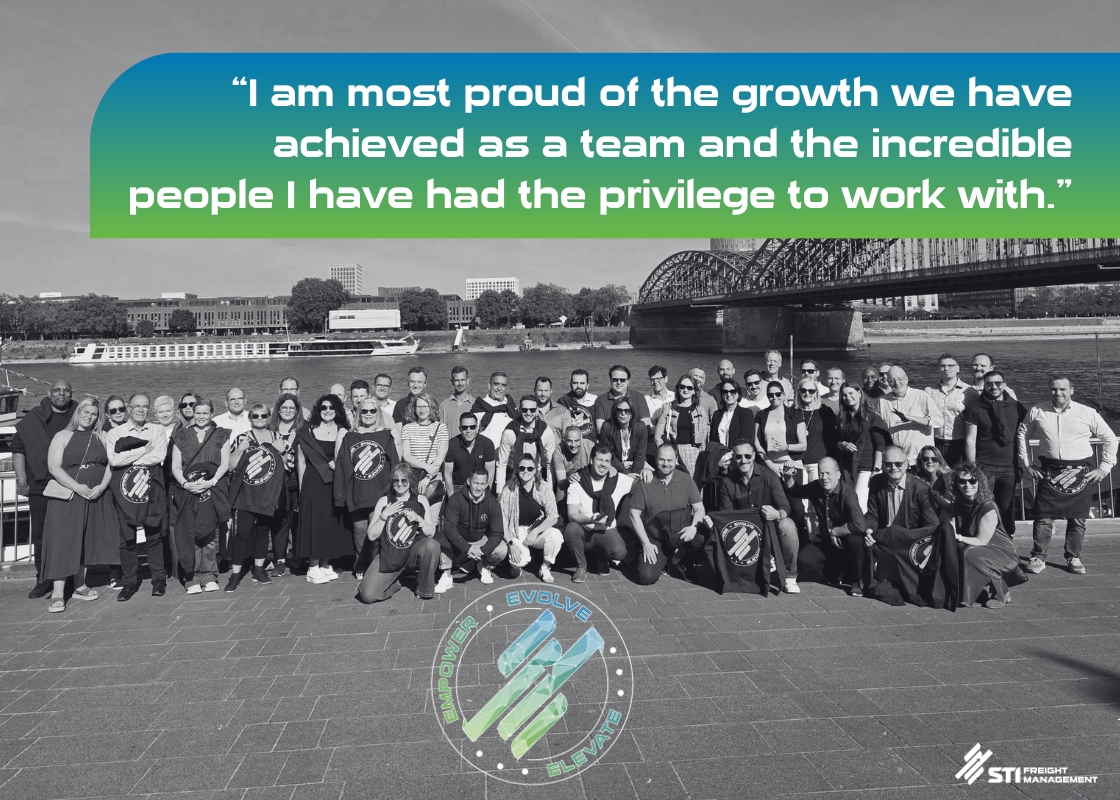Reflections on a 38-Year Career in Logistics
Our Vice President Shares Key Milestones, Lessons Learned, and Experiences from His Journey in the Industry
Looking back on a more than 38-Year Career in Logistics
Thinking back to your early years, what experiences shaped the way you approached your work — and still do today?
My mentors were instrumental in shaping my approach to work. They gave me the space and trust to take on more responsibilities, and I’m grateful for that. They accepted me for who I am, allowing me to be authentic, and even tolerated my mistakes, which gave me the chance to learn and grow. The "people first" approach - an open-door culture - has stuck with me. I have always been encouraged to reflect on both my achievements and mistakes to learn and improve daily. I made sure to bring this leadership style to my peers over the years. I also appreciate the incredible professionals and leaders I have met internally as well on customer side, many of whom I still keep in touch with today, even if they have moved on to other companies. That network is invaluable.
One of the most defining moments for me was starting as an assistant to the Havi DC Manager here in Duisburg, 34 years ago. It was not just a professional milestone, but also a personal one. It provided me with the financial stability to start a family with my wonderful wife and two amazing children. I am deeply thankful for that. In the early years, I was given the chance to work in the field - on distribution trucks, in warehouses, and more. Although it was a big shift from my office tasks, it was incredibly valuable. It took me a moment to understand how operating forklifts and picking orders worked, but once I did, those experiences became invaluable in shaping my career in Operations. Even today, when I run into some of the great field workers at events like Christmas parties, we have a good laugh about those early days.
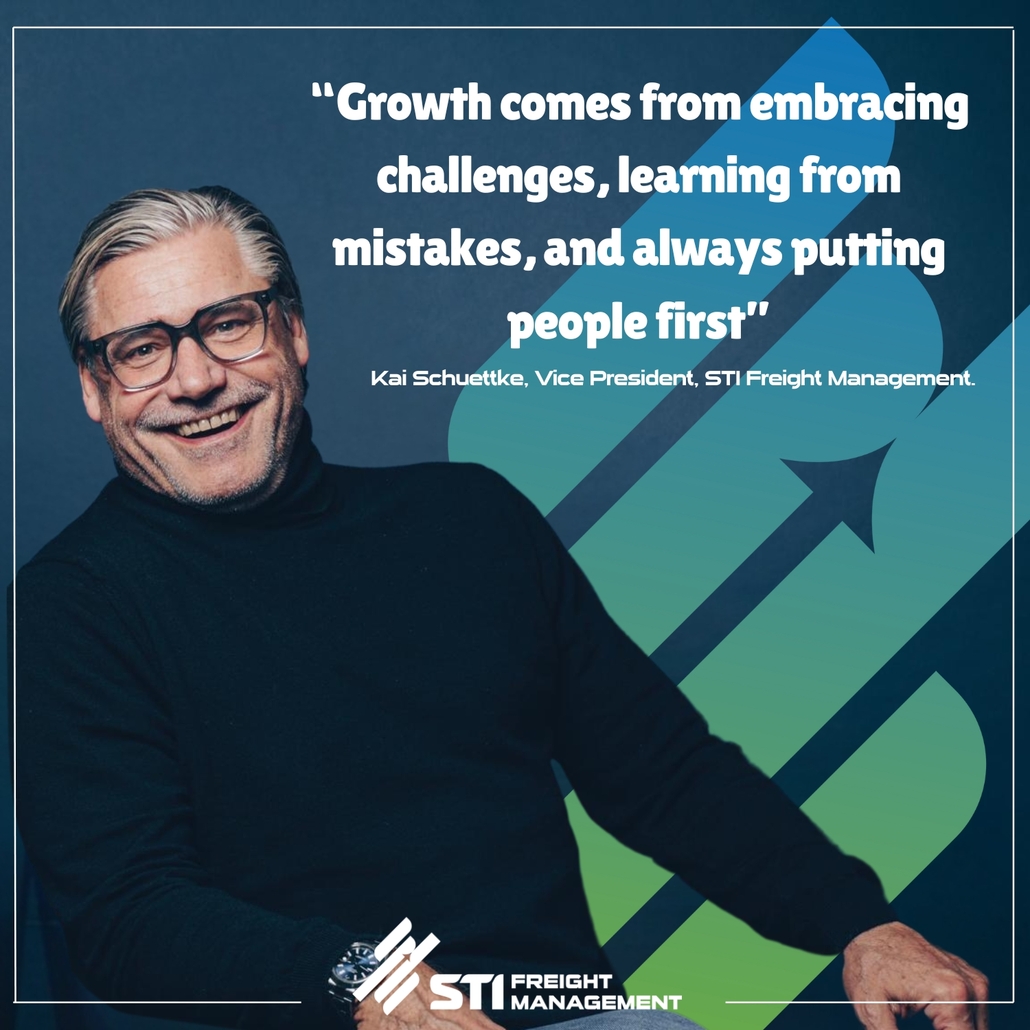
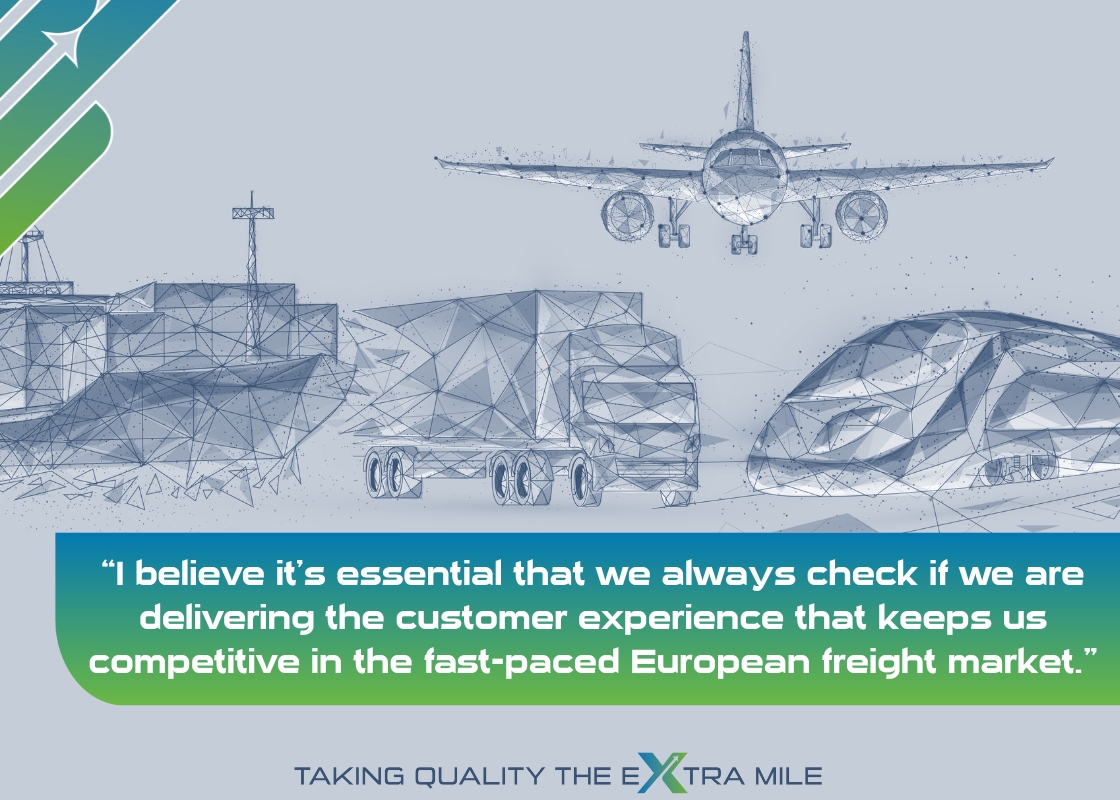
From Evolution to Future Challenges
Having seen logistics evolve over the decades, what changes stand out most to you?
The complexity of global supply chains has become more pronounced, and as service providers, we must continue to contribute to our customers’ competitiveness. Our customers’ supply chains are more volatile, and they require high levels of service to remain competitive daily. I started working in Hamburg when things were very different 38 years ago - telex machines and phones were our main communication tools. And yes, there was a lot of coffee and chain smoking involved! Since then, our industry has transformed drastically. Today, global supply chains demand resilient processes, real-time data, and reliable supply chains - all managed by skilled professionals who are always ready to go the extra mile.
How did digitalisation transform your work compared to when you began?
As I mentioned before, digitalisation has had a major impact on the industry. To stay competitive, having a clear digital strategy is essential. At STI Freight Management, we have embraced this, particularly with AI. It is crucial that we constantly evaluate whether we are delivering the customer experience that keeps us competitive in such a fast-moving and competitive European freight market.
Temperature-controlled logistics has always been a core part of our business. What developments in this field do you see as most significant during your career?
The most significant developments for me have been the availability and support of real-time track and trace data. This technology has helped us improve efficiency and productivity, eliminating non-value-added tasks. In the future, AI will continue to support us in daily planning and other task, making our service even more streamlined.
We are currently living in what is known as a VUCA world - Volatility, Uncertainty, Complexity, and Ambiguity. The challenge is to prepare ourselves for these factors and create the best customer experiences in this unpredictable environment. We need to offer our customers well-trained professionals, supported by cutting-edge digital and AI technology.
Sustainability has become central in recent years. How do you hope the industry will continue balancing performance with responsibility?
From my perspective, sustainability is becoming more essential, and I am optimistic that both the trucking and information technology industries will find ways to provide affordable solutions that help us meet our sustainability goals while still delivering high performance. In logistics, I have already seen how alternative fuels like HVO, along with the shift to more energy-efficient transport modes, such as electric trucks and e-trailers, are helping reduce emissions and make our operations more sustainable.
But sustainability is not just about the logistics side. It also extends to the way we operate on a daily basis in the office - whether it is reducing waste, using less paper, or improving energy efficiency. On top of that, supporting communities and giving back to the planet through various environmental initiatives is a key part of how we can balance the challenges of performance and responsibility. I believe that by embracing these changes, the industry can continue evolving in a responsible way without compromising on the service we provide.
What advice would you like to leave for the next generation stepping into logistics?
My advice is simple: never stop learning - especially about AI and how it can support us as freight managers in the highly competitive European market. Reflect on your mistakes, learn from them, and become better every day. Seize every opportunity that comes your way, and go the extra mile. Build a strong network within your company and with your customers. Understand the big picture of your company’s strategy and find ways to contribute to it every day. And, most importantly, have fun at work - even during tough times. Overcome challenges, learn from them, and emerge stronger. Always be authentic, humble, and confident.
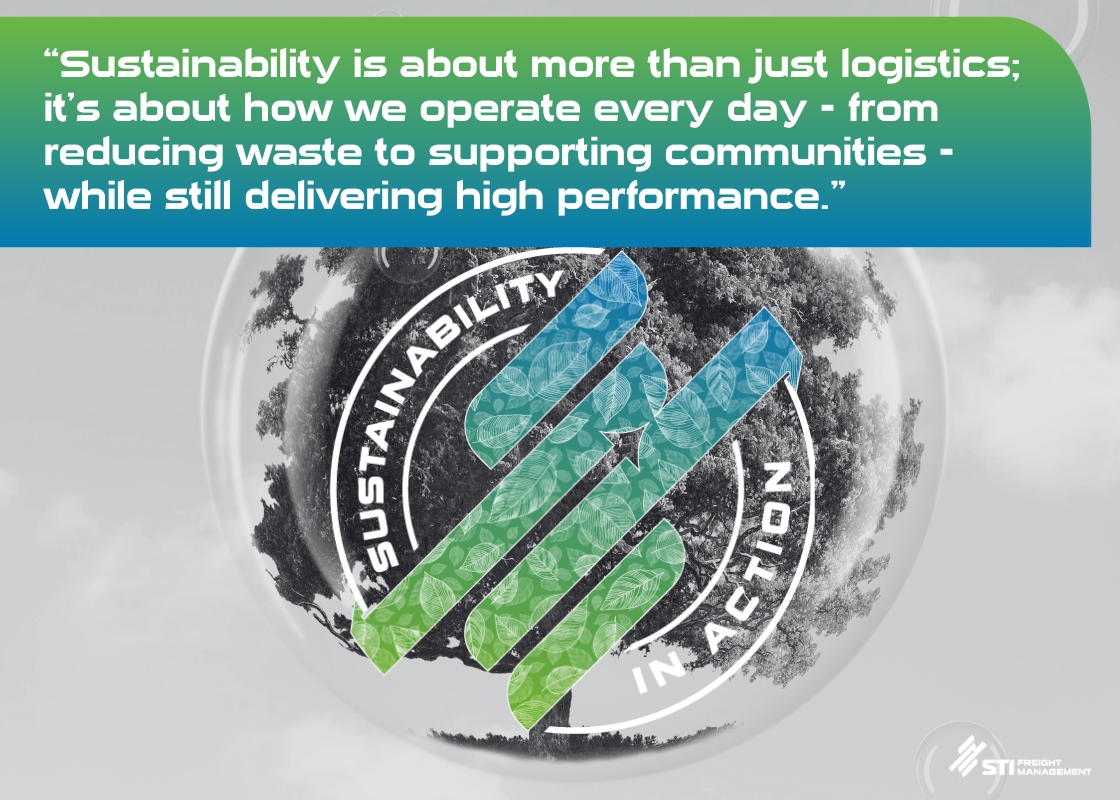
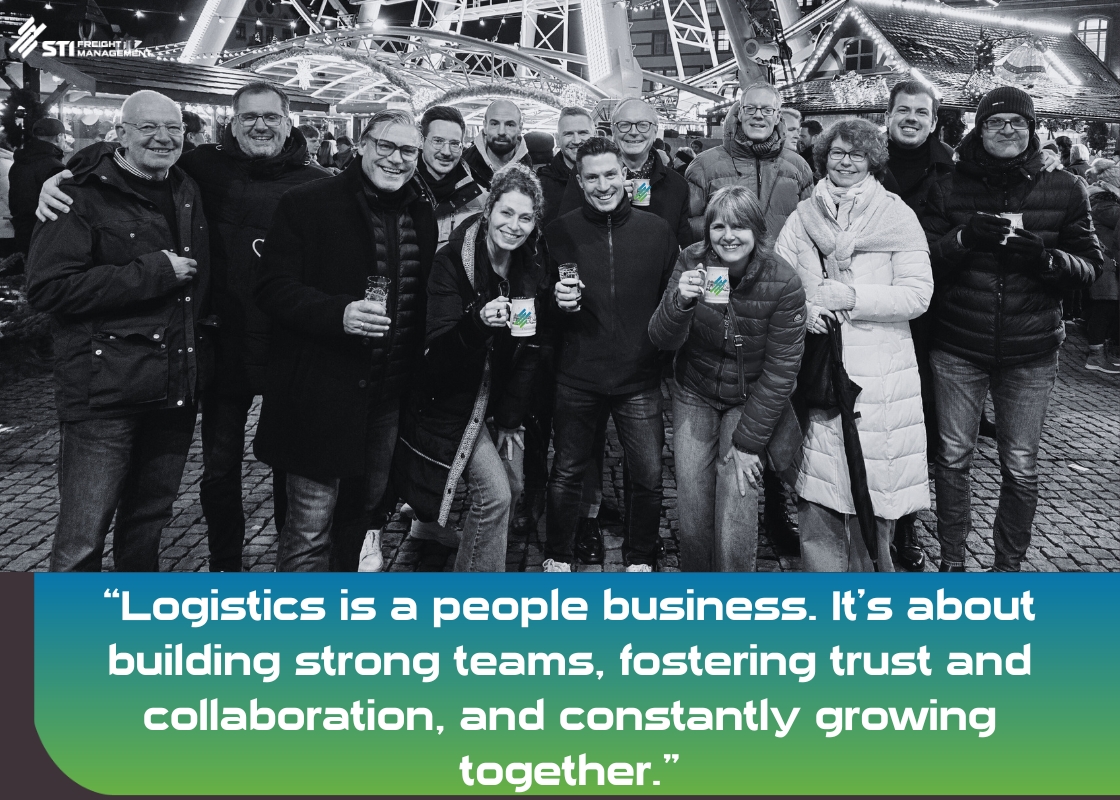
The Human Side and Company Culture
Logistics is absolutely a people business. I have been fortunate to meet a group of talented and supportive individuals along my journey. These people have helped me build great teams, develop professionally, and grow as a person. The human side is what makes it all worthwhile. Our claim, "Taking Quality The Extra Mile," speaks to this, as it is about people striving to give their best in everything they do.
What does this mean to you personally, and how do you see it reflected in our teams?
It has been my daily motivation and the foundation for my success and satisfaction over the years. I am incredibly proud of the entire STI Freight Management team in Europe for their dedication to creating a work environment built on trust, respect, and collaboration. This is reflected in how they support each other, learn from mistakes, and grow together. Thanks to them, we have developed a company where people thrive, and that is a key reason for our success. Their commitment to excellence is evident in the feedback we receive from customers and the results we have achieved, proving that they consistently go the extra mile.
How would you describe our company culture and values to someone who does not know us?
I would describe our company culture as being centered around core values that guide everything we do. We emphasize open communication, ensuring everyone feels heard and respected. We have strong leadership and a real focus on employee well-being. Flexibility and adaptability are also key, allowing us to face challenges and keep improving. It is a culture of respect, teamwork, and a commitment to excellence, and that’s what truly sets us apart.
Personal Reflections
What I am most proud of is the positive customer feedback we have received and the growth we have achieved. But as I mentioned before, I am equally proud of the strong company culture we have built together. Over the last 13 years, I have watched many of our team members grow as professionals, leaders, and individuals, and that has been incredibly rewarding. We have also made great progress with digital solutions, which has significantly improved the customer experience. What motivates me most is knowing our team is ready to take on the challenges ahead.
If you could give your younger self one piece of advice, what would it be?
I would tell myself to live outside of Germany for 2-3 years, to experience a different culture and language. It would have been a valuable experience both personally and professionally.
As you step into the next chapter of your life, is there a message you would like to share with your colleagues, partners, and everyone you have worked with?
I want to say a big thank you to all the stakeholders who have supported me throughout this incredible journey. I am grateful to have worked with so many amazing people, and I wish everyone the very best for the future.
